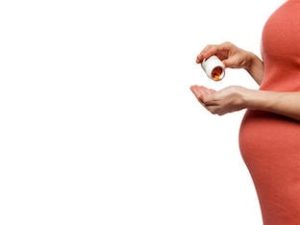 Can Low Iron Cause Miscarriage? When you plan to have a baby and consult your doctor about it, you are asked to load up on prenatal multivitamins and iron tablets. Ever been curious about the importance of iron when trying to conceive? Well, here’s all you need to know about how iron affects fertility and pregnancy. Read on.
Can Low Iron Cause Miscarriage? When you plan to have a baby and consult your doctor about it, you are asked to load up on prenatal multivitamins and iron tablets. Ever been curious about the importance of iron when trying to conceive? Well, here’s all you need to know about how iron affects fertility and pregnancy. Read on.
Can anemia stop you from getting pregnant?
Women who do not have sufficient amount of iron in their bloodstream suffer from anovulation, or the lack of ovulation. Also, lower amounts of iron in the body could affect the egg health and result in poor egg health. Both above conditions can inhibit pregnancy by approximately 60% as compared to those that have sufficient amounts of iron in their bodies.
When the body does not receive its requisite amount of iron, a condition called anemia develops wherein there is an insufficient number of red blood cells in the bloodstream. Thus, the cells, tissues and body organs do not receive the required amount of oxygen and nutrients.
This is also true for reproductive organs like ovaries and the uterus. The eggs stored within the ovaries do not receive oxygen, become weak and turn unviable. All the abovementioned conditions lead to problems in fertility, thus making conception difficult, and in most cases impossible without medical treatment.
How does low iron affect pregnancy?
Despite having the condition of low iron in your body, if conception does take place successfully, the growing fetus does not receive its requisite amount of blood supply. The dividing fetus cells do not receive their due nourishment, do not divide further and the fetus stops growing, causing a premature termination of pregnancy, termed as miscarriage.
How does anemia affect pregnancy?
It is quite common to have a mild form of anemia when you are pregnant. Prenatal multivitamins and iron supplements typically stabilizes the condition. In fact, blood loss during pregnancy can lead to anemia. However, if you have a severe form of anemia when pregnant and it goes untreated, it could lead to unwarranted complications and pregnancy risks.
There are three common forms of anemia during pregnancy:
- Iron-deficiency anemia develops when the body doesn’t have iron to produce the adequate amount of hemoglobin, a blood protein, that aids in transporting oxygen from the lungs to the rest of the body. This is the most common form of anemia during pregnancy.
- The folate-deficiency anemia occurs when this type of Vitamin B, found in green leafy vegetables, is found in inadequate amounts in your body. And since folate deficiency can result in fewer red blood cells to transport oxygen throughout the body, such a form of anemia can result in birth defects such as spina bifida and low birth weight.
- Vitamin B12 deficiency-induced anemia occurs in women whose diet does not include meat, eggs, poultry and dairy products. This form of anemia during pregnancy could also result in neural tube abnormalities as well as possible preterm labor.
A blood transfusion may be required in case there is blood loss due to bleeding during your pregnancy. Also, women with anemia during pregnancy could deliver a baby with anemia causing developmental delays and other blood-related complications.
These conditions are generally reflected through symptoms such as pale skin, lips and nails, feeling of tiredness, dizziness, shortness of breath and rapid heartbeats.
How can anemia during pregnancy be prevented?
The best prevention that one can think of is proper intake of iron before, during and after pregnancy.Adding well-balanced meals and foods rich in iron to your diet are essential. Generous servings of meat, poultry and fish for those that consume non-vegetarian foods, and green, leafy vegetables, iron-fortified cereals and grains, lentils, tofu, nuts, seeds and eggs for the those that consume vegetarian food are recommended.
A crucial point to remember is not to only load up on iron-rich foods or supplements. Synergistic nutrients such as Vitamin B12 and Vitamin C work in perfect tandem with iron supplements and help improve iron absorption and utilization in the human body. Hence Vitamin C-rich citrus fruits such as oranges, lemons, strawberries, kiwis, tomatoes and veggies such as bell peppers should be incorporated into your diet. A balanced diet, healthy lifestyle and adequate exercise as equally important when trying to conceive and even after conception.









